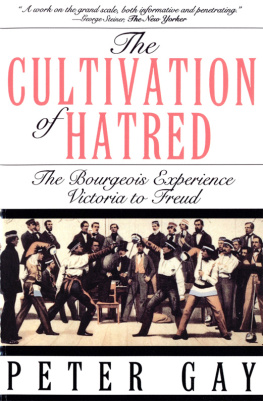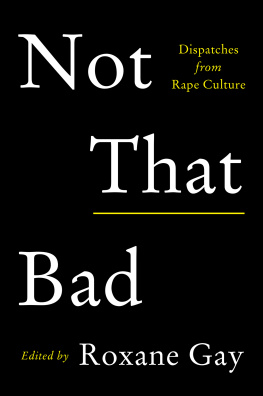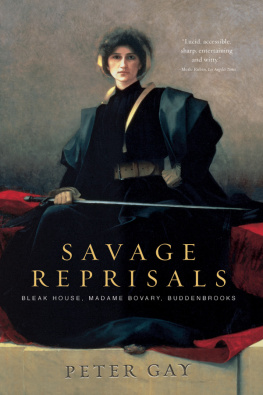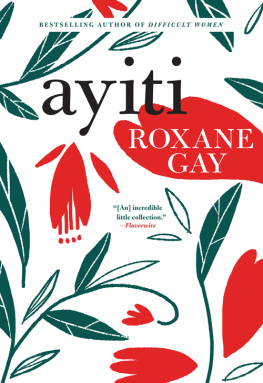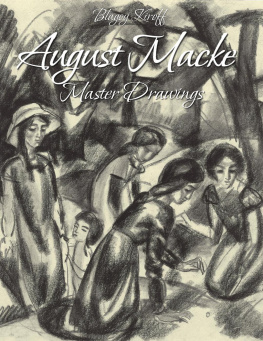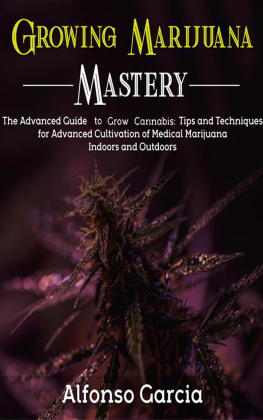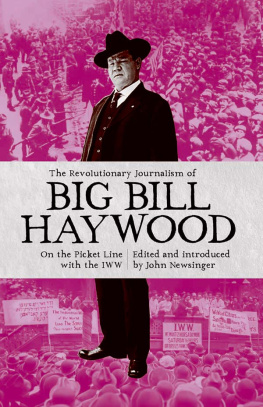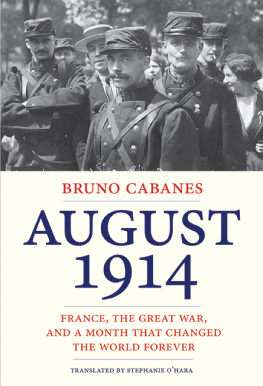Gay - The Cultivation of Hatred
Here you can read online Gay - The Cultivation of Hatred full text of the book (entire story) in english for free. Download pdf and epub, get meaning, cover and reviews about this ebook. City: Europe;United States, year: 2013;1993, publisher: W. W. Norton & Company, genre: Art. Description of the work, (preface) as well as reviews are available. Best literature library LitArk.com created for fans of good reading and offers a wide selection of genres:
Romance novel
Science fiction
Adventure
Detective
Science
History
Home and family
Prose
Art
Politics
Computer
Non-fiction
Religion
Business
Children
Humor
Choose a favorite category and find really read worthwhile books. Enjoy immersion in the world of imagination, feel the emotions of the characters or learn something new for yourself, make an fascinating discovery.
The Cultivation of Hatred: summary, description and annotation
We offer to read an annotation, description, summary or preface (depends on what the author of the book "The Cultivation of Hatred" wrote himself). If you haven't found the necessary information about the book — write in the comments, we will try to find it.
Gay: author's other books
Who wrote The Cultivation of Hatred? Find out the surname, the name of the author of the book and a list of all author's works by series.
The Cultivation of Hatred — read online for free the complete book (whole text) full work
Below is the text of the book, divided by pages. System saving the place of the last page read, allows you to conveniently read the book "The Cultivation of Hatred" online for free, without having to search again every time where you left off. Put a bookmark, and you can go to the page where you finished reading at any time.
Font size:
Interval:
Bookmark:
Introduction
Victorian is used in this book as a synonym for nineteenth-century. There were Victorians before Victoria and after; the long nineteenth century ran from the defeat of Napoleon in 1815 to the outbreak of the First World War in August 1914. What is more, traits we rightly consider characteristic of the Victorians were not confined to Great Britain.
For rival theories of aggressionincluding the psychoanalytic, on which I have drawn in this textsee the Appendix.
BOURGEOIS EXPERIENCES, III
In a nostalgic gesture redolent with unconscious irony, the executioner built a garden house with the remains of Sands scaffold, a secluded place where members of suppressed fraternities would later meet.
There is abundant anecdotal evidence that Jews duelled bravely and skillfully. One of these was Carl Koller, famous for his discovery of cocaine as an anesthetic. In 1885, a young physician and lieutenant in the reserves, he became involved in an altercation with another physician, also a lieutenant, over the treatment of a patient in the emergency ward. The latter called Koller a Jewish swine, whereupon Koller boxed his ears. The necessary outcome: a duel with foils, to continue until one of the combatants was unable to go on. Koller wounded his antagonist. Among the many letters of congratulation he received was one from his friend Freud. See Hortense Koller Becker, Coca Koller: Carl Rollers Discovery of Local Anesthesia, Psychoanalytic Quarterly, XXXII (1963), 30073.
Chapter 1
It is well attested that Marx proposed to dedicate the first volume of Kapital to Darwin as a token of his admiration; Darwins name does not appear on the dedication page only because he politely declined the honor.
Nor should Andrew Carnegie have wondered at Spencers response to industrial America, supposedly the supreme incarnation of his philosophy. Carnegie had been instrumental in promoting Spencers visit to the United States, and even lured him to Pittsburgh. A tour of a Carnegie steel plant left him almost, but not quite speechless. Six months residence here, he told his host curtly, would justify suicide. Joseph Frazier Wall, Andrew Carnegie (1970), 386.
In his adoring biography of Haeckel, Wilhelm Bolsche made excited propaganda for Haeckels blasphemous Darwinian pantheism. Virtually alone, he claimed, Haeckel had fully grasped Goethes song about the God-Nature: All-Nature. And he himself in that Nature. All-Evolution. And he himself in this Evolution. Ernst Haeckel. Ein Lebensbild (1900), 5.
Toward the end of his life, in July 1881, Darwin told William Graham, a professor of jurisprudence in Belfast, that he stood by these vintage Social Darwinist convictions: I could show fight on natural selection having done and doing more for the progress of civilisation than you seem inclined to admit. He reminded Graham of the way that the more civilised so-called Caucasian races have beaten the Turkish hollow in the struggle for existence, and, looking to the near future, he predicted that an endless number of the lower races will have been eliminated by the higher civilised races throughout the world. Ronald W. Clark, The Survival of Charles Darwin: A Biography of a Man and an Idea (1984), 2067.
See also the curious novel The Outcast, in which Winwood Reade, a speculative historian and earnest student of Darwin, paid a rather odd tribute to his own loss of religious faith after reading the Origin of Species. The novel records the appalling fate of an amiable, intelligent, scholarly, profoundly religious young man who, upon reading Malthus on population and, worse, Darwin on the origin of species, begins to question his cherished Christian beliefs, goes hopelessly insane, and hangs himself.
Assailedand mocked. Sumner feared that rhetorical phantasms gain access to young minds and fester there. In an essay exploring the publications to which the boys of his time were regularly exposed, he objected to the way that all-too-popular tales of adventure inculcate the martial spirit. See What Our Boys Are Reading (1880), Earth-Hunger and Other Essays, ed. Albert Galloway Keller (1913), 37576.
Vandover and the Brute (written in 1895; published posthumously in 1914), 251. The character who voices these views, Charlie Geary, is the villain of the tale. But in Norriss universe, in which the higher and the lower are in perpetual conflict, Gearys philosophy has much of the truth.
In the late sixteenth century, baffled by the seemingly interminable religious wars between Catholics against Huguenots, the French statesman Pomponne de Bellievre proposed to reestablish harmony among Christians by unleashing a crusade against the Turks. It is not possible to preserve the domestic peace except by a foreign war. European states are like stomachs requiring a diet of infidels. Raymond F. Kierstead, Pomponne de Bellievre: A Study of the Kings Men in the Age of Henry IV (1968), 3435. Shakespeare put this counsel into the mouth of the dying Henry IV, who in his final interview with his son, prince Hal, urges him to busy giddy minds / With foreign quarrels, to make the people forget the murder of Richard II. 2 Henry IV, act 4, sc. 4. Shakespeares contemporary Robert Burton observed that in a Commonwealth, where is no publick enemy, there is, likely, civil wars, and they rage upon themselves. The Anatomy of Melancholy (1621; ed. Floyd Dell and Paul Jordan-Smith, 1927), 212.
From a psychoanalytic perspective things were even more intricate. The rage to improve the world whether it wanted improvement or not, usually called benevolence, was, often enough, what Freud called a reaction formationa defense mechanism that converts aggressive feelings into their opposite and thus masks them. The most determined anti-aggression is often aggressive in origin.
One captain of an English slave ship, Thomas Phillips, observed in 1694 about African natives that he could not imagine why they should be despisd for their colour, being what they cannot help, and the effect of the climate it has pleasd God to appoint them. I cant think there is any intrinsick value in one colour more than another, nor that white is better than black, only we think it so because we are so, and are prone to judge favourably in our own case, as well as the blacks, who in odium of the colour, say, the devil is white, and so paint him. Winthrop Jordan, White over Black: American Attitudes toward the Negro, 15501812 (1968), 11. Phillips sounds like the thinker of the eighteenth-century Enlightenment, to whom this reasonable relativism appealed greatly; Voltaire observed in an essay on beauty that a toad finds another toad beautiful.
Disraelis conviction demonstrates that in his day, race could be enlisted to support a wide variety of positions; for him, it was essential to show that the Jewish race, the mother of Christianity, had made valuable contributions to civilization. See Robert Blake, Disraeli (1967; ed.1968), 19397.
The practice of attributing racial characteristics to various groups was accepted enough for so discriminating a writer as William James to distinguish the Latin races (which think of sin in the plural and as a stigma removable in detail) from the Germanic races (which think of Sin in the singular, and with a capital S). The Varieties of Religious Experience: A Study in Human Nature (1902), 134. While such imprecise usage took some of the edge off the term, those speaking of race hatred and predicting race war were not disposed to weaken it. To complicate matters further, racial categories were often confused with class categories, so that one snobbery sustained another. See Philip Mason, Prosperos Magic (1962).
The parallel to the shift from buoyancy to gloom among Social Darwinists is close. Significantly, so well educated and clever a politician as Henry Cabot Lodge, the powerful Republican senator from Massachusetts, could not resist employing racist arguments even though he did not fully believe them. Perceiving the millions of immigrants from southern and eastern Europe to be a threat, he spoke as a pragmatic racist in his campaign for restrictive legislation. On March 16, 1896, he told his colleagues, honestly enough, that there is no such thing as a race of original purity according to the divisions of ethnical science, but quickly added that there are artificial races, made by climatic influences, wars, migrations, conquests, and industrial development. And when these artificial races were permitted to mix, the lower would outdo the higher. Barbara Miller Solomon,
Next pageFont size:
Interval:
Bookmark:
Similar books «The Cultivation of Hatred»
Look at similar books to The Cultivation of Hatred. We have selected literature similar in name and meaning in the hope of providing readers with more options to find new, interesting, not yet read works.
Discussion, reviews of the book The Cultivation of Hatred and just readers' own opinions. Leave your comments, write what you think about the work, its meaning or the main characters. Specify what exactly you liked and what you didn't like, and why you think so.

